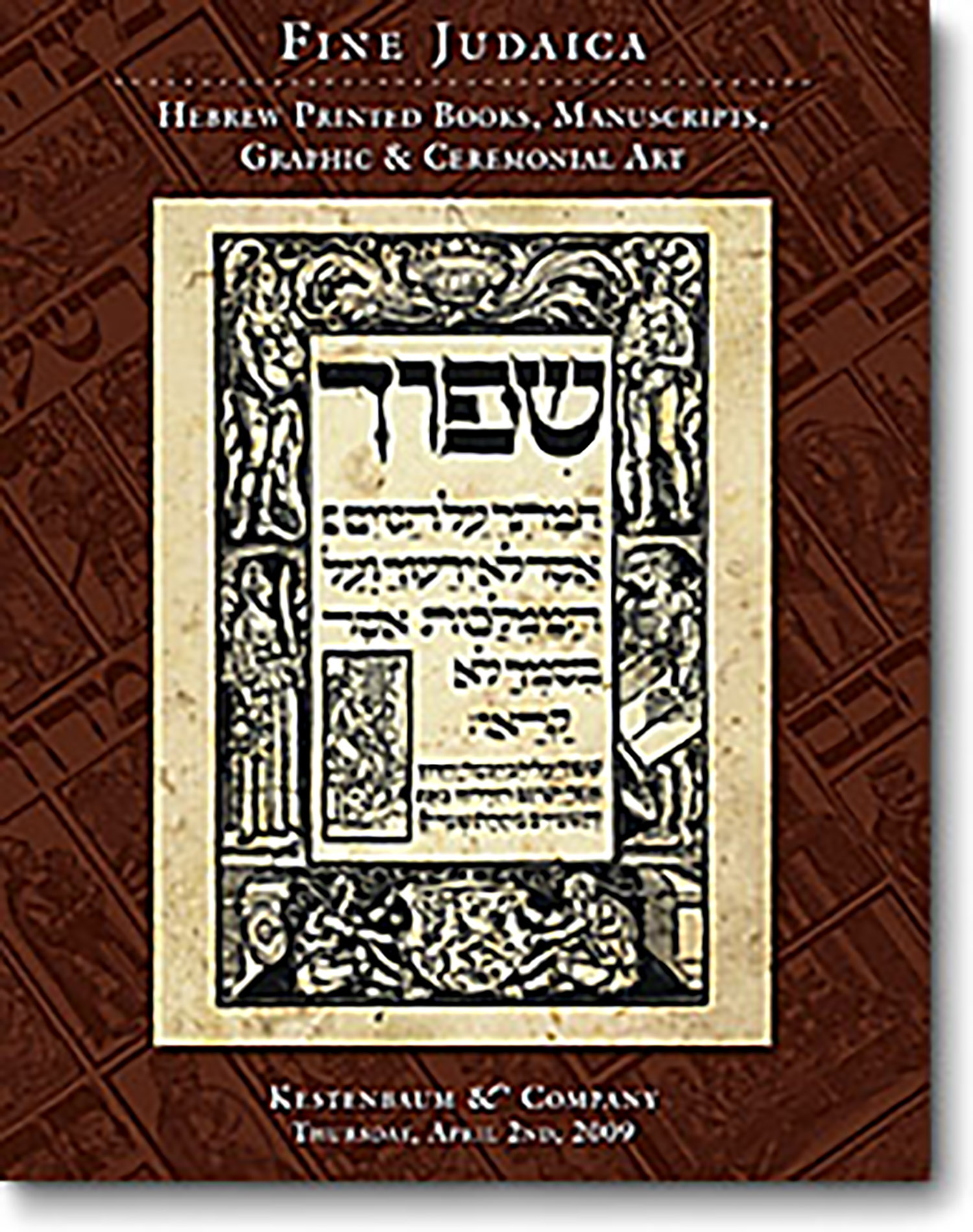Governor Worthington's Speech, on the Maryland Test Act, 1824. Speech of Col. W.G.D. Worthington, A member of the General Assembly of Maryland, from the City of Baltimore. On the Confirmatory Act, Abolishing the Religious Test.

AUCTION 43 |
Thursday, April 02nd,
2009 at 1:00
Fine Judaica: Hebrew Printed Books, Manuscripts, Graphic & Ceremonial Art
Lot 24
(AMERICAN JUDAICA)
Governor Worthington's Speech, on the Maryland Test Act, 1824. Speech of Col. W.G.D. Worthington, A member of the General Assembly of Maryland, from the City of Baltimore. On the Confirmatory Act, Abolishing the Religious Test.
Baltimore: William Wooddy 1824
Est: $15,000 - $20,000
PRICE REALIZED $28,000
EXCEPTIONALLY SCARCE AND FUNDAMENTALLY IMPORTANT TRACT IN THE DEVELOPMENT OF AMERICAN-JEWISH CITIZENRY.
While the Federal Constitution and Bill of Rights guaranteed full equality to the Jews, its provisions were not binding on state governments prior to the passage of the Fourteenth Amendment in 1868. Consequently, every state, with the exception of New York, proceeded to adopt a constitution that deprived the Jews of political equality. In Maryland alone there was a protracted struggle to invest the Jews with political equality.
Maryland’s first constitution, passed in 1776, retained a colonial statute requiring all public servants to invoke a Christian oath. Not only were governmental officials and members of the legislature considered public servants, but so were lawyers, militia officers and jurors. Thus, a Jew was deprived of a possible livelihood, opportunities to demonstrate his loyalty and a trial by his peers. Maryland Jews protested their inferior status as early as 1797, but it was not until 1826, when the Jew Bill was confirmed by the legislature, that Jews were alleviated of all disabilities. The staunchest advocates of the Jewish cause during this struggle were Henry M. Brackenridge, John S. Tyson and William G. D. Worthington.
The impact of the Jew Bill extended well beyond Maryland, despite the fact that it was a state issue. It caught the young nation's attention, and reverberated overseas. In Britain, where the Jewish question was an even more contentious issue, members of Parliament received copies of pro-Jew Bill speeches.
Much useful information concerning the Jews of the newly formed United States is contained in "Solomon Etting's Answers to Col. Worthington's Queries" (pp. 17-18). Thus, we learn that the Jews of Maryland numbered some 150 and that their general wealth was estimated at half a million dollars, while the number of Jews in the United States came to some 6000, and their combined wealth was estimated at tens of millions of dollars. We are also treated to facts concerning those Jews who served their country in the American Revolution and after, such as Uriah P. Levy, Lieutenant in the Navy of the United States (pp. 18-20). Worthington made use of the correspondence between George Washington and the Hebrew Congregations of Savannah, Newport, Philadelphia, New York, Charleston and Richmond (pp. 22-27). Worthington's point being that were Washington alive, he would not "support a Religious Test against any religion whatever, much less that of the children of Abraham" (p. 28).
See S. W. Baron and J. L. Blau, The Jews of the United States, Vol. 1; S. F. Chyet, "The Political Rights of the Jews in the United States," American Jewish Archives 10.1 (Apr. 1958): 14-75; Edward Eitches, "Maryland's Jew Bill," American Jewish Historical Quarterly 60.3 (Mar. 1971): 258-79; A. J. Karp, Beginnings: Early American Judaica, 31-6.
Worthington’s speech, originally printed in 1824, was reprinted in the collection, “Speeches on the Jew Bill in the House of Delegates in Maryland” (Philadelphia, 1829) and sold by Kestenbaum & Company, September 2005, Lot 27.
